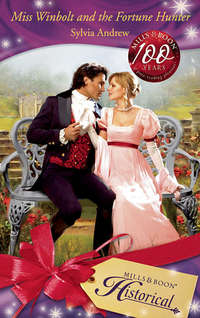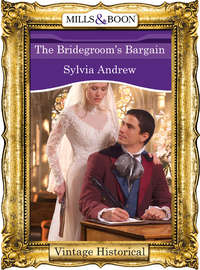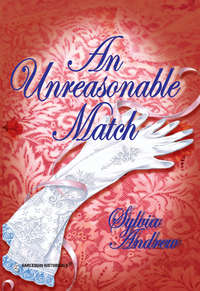
Полная версия
Regency High Society Vol 2: Sparhawk's Lady / The Earl's Intended Wife / Lord Calthorpe's Promise / The Society Catch
“Everything in order, Lieutenant?” asked Jeremiah, anxiety making him testy. The longer the Frenchman fidgeted with the certificate, the more likely he was going to question it. “This wind’s in our favor, and we’ve hauled too long enough.”
“Patience, monsieur, patience. I must be able to satisfy my captain, as well as myself, that your affairs are as they should be.” The wind thumping through the furled sails overhead was the only sound on the deck as Delafosse studied the paper more closely and Jeremiah held his breath. He’d used Bertle’s own ink to change the sloop’s origin, and to his eye the addition was indistinguishable. “It is most curious to me, monsieur, how when establishing colonies in your land the English so often chose to give names of their old towns to the new ones. There is no Paris or Marseilles in New France, yet here we have a Portsmouth in America, doubtless named for the Portsmouth in England.” Delafosse ran his fingertip lightly over the town’s name. “Your Portsmouth is in Rhode Island, is it not? Near to your capital city of Providence?”
Jeremiah answered warily. It was unusual for any European to know Rhode Island was a state, let alone the name of its capital, and he worried that perhaps, somehow, with this particular Frenchman, he’d been too clever. “Aye, it’s in Rhode Island, but closer to Newport than to Providence.”
“Ah, my confusion!” The Frenchman’s dark eyes watched Jeremiah closely, ready for weakness. “But it is Portsmouth, is it not, that is home to that most excellent library of one of your citizens, a Monsieur Abraham Redwood?”
“That is Newport, too, Lieutenant.” In return, Jeremiah studied Delafosse shrewdly. “As you know well enough yourself.”
“Am I so obvious, then?” The Frenchman smiled wryly and refolded the papers for Jeremiah. “I was stationed in Newport with General Rochambeau during your country’s war for independence. Though I was no more than a boy at the time, of course, I remember Rhode Island and its people with great affection and regard.”
Jeremiah tucked the leather packet beneath his arm. “But still you’d question my word and test me?”
Delafosse shrugged. “A lying Anglais would not know of Mr. Redwood’s library. I wanted to be sure. Your sloop would have made an excellent prize.” Once again he glanced over the Raleigh, this time with obvious regret, and motioned for his men to return to the boat. “Bonsoir, monsieur, madame, et bon voyage!”
They were barely over the side before Caro’s arms were around Jeremiah’s neck. Giddy with relief, she giggled and hugged him tightly.
“I told you you’d fool them!” she exclaimed gleefully as she tossed the veil back from her face. Balancing on tiptoe, she darted up and kissed him quickly, retreating before he could kiss her back. “You were perfect, Jeremiah. No, you were better than perfect, and so vastly clever, too, to know all about those places in Rhode Island!”
“It’s my home, Caro,” he said, steadying her with his hands around her waist. “I should know about it. But your own performance wasn’t so bad, either.”
“Oh, pooh, I didn’t do anything compared to you,” she scoffed. She didn’t dare kiss him again, but she couldn’t resist laying her hand gently on his rough cheek for a moment. “But at least this time I won’t have gotten the magistrate to put a price on your head.”
He scowled dramatically. He wasn’t ordinarily playful by nature—far from it—but Caro like this was hard to resist. “I should be thankful, then, for small graces.”
“I’d call them quite large.” She thumped his chest with her fist. “Who wants to be locked up in some dreary French prison?”
He grinned, letting himself enjoy the rare sensation of unexpected happiness. It had been like this before when they’d done something bold together, the camaraderie of a shared adventure bringing them close. He had been trying so hard these past weeks not to look at her in any way that might be misconstrued that now, in this moment when it didn’t seem to matter, he drank in her beauty as if he’d never have enough.
Little gold tendrils escaped from the brim of the severe black bonnet, matching the pale gold of her lashes. Despite her bonnet and veil, the sun off the water had scattered more freckles across her nose and cheeks that, to his satisfaction, she didn’t bother trying to hide with paint or powder. But most of all she looked happy, blissfully, joyfully happy in a way that he was sure must mirror his own feelings, even if each of them knew it could not last.
With the crew hurrying to get the sloop under way and Bertle once again the captain, they stood alone in the center of the quarterdeck, a two-person island of idleness in the rush of preparation. For the first time on the voyage, Jeremiah didn’t mind being a passenger. How could he, with Caro once again in his arms and her laughter rippling merrily across the water?
“You seem to have routed them Frenchmen well enough, Sparhawk,” said Bertle sourly behind them, and swiftly Caro separated herself from Jeremiah. “I suppose now I must thank you.”
“Only if you wish it, Captain,” said Jeremiah, determined not to let this one disagreeable man spoil his mood. “I saved my wife and myself, as well, so I wasn’t being entirely selfless.”
Bertle spat over the side. “It’s how you did it rankles me. All that bowing and scraping and pretty talk to that Frenchman! I never thought I’d live to see a bloody French bastard treated so nice on my deck.”
“You kept your deck, didn’t you?” demanded Jeremiah. Bertle grunted, unconvinced. “Seems to have improved your wife’s spirits, though, didn’t it? Seems like by being all lovey-dovey with the Frenchman, she’s forgotten clear about her poor dead brother, and mighty fast, too, for an Englishwoman.”
Caro gasped, her hand fluttering to her mouth, and retreated behind Jeremiah’s broad back. He’d seen the agitation in her face, and whether it came from fear or surprise, he wasn’t going to let the other captain’s rudeness pass any longer.
“You’ve upset my wife,” he demanded, his expression black. “What are you trying to say, anyway?”
“Not a word, Sparhawk,” said Bertle, his grizzled chin still raised belligerently and his eyes filled with hatred. “Not against you or your little French-speaking wife. Not a blessed word.”
He stalked to the rail before Jeremiah could speak again. Shaken, Caro watched him go, her hand pressed to Jeremiah’s back for comfort. She’d heard the emphasis Bertle had put on the word “wife.” Somehow, he knew the truth, most likely through her own carelessness. Rapidly she thought back on how she’d teased and laughed with Jeremiah here on the deck. No one would have believed they were husband and wife, not acting like that. Only lovers would be so oblivious to others around them. If even a dried-up old stick of a man like Captain Bertle could see it, then he’d know what to call her, too, a married woman who’d behave like that with a man she pretended was her husband—a slattern, a trollop, a bold-faced little whore.…
“I’m going below to the cabin,” she told Jeremiah, and turned toward the companionway.
But Bertle had heard her, too, and he jerked around to face her. “Didn’t mean to scare you off, Mrs. Sparhawk,” he called, almost whining, as much an apology as he’d probably ever give. “Didn’t mean for you to take offense.”
She didn’t believe him. She’d seen his kind of contempt all too often. “I’m weary, Captain Bertle, and should like to rest.”
His glance darted nervously from her to Jeremiah, and he rubbed his hand across his mouth. “It would be a shame, Mrs. Sparhawk, for you to spend such a pretty afternoon tucked away below.”
She hesitated, looking up to Jeremiah for reassurance. His mouth was tight, the expression in his eyes so daunting that she knew if Bertle made one comment against her Jeremiah would tear him apart. She didn’t want that to happen, any more than she wanted to admit that the English captain had driven her away, and so, with some reluctance, she stayed.
Bertle had drawn his pipe from his pocket and he stood puffing away as he struggled to light it, his hands cupped to shield the spark from the wind and spray. “You ever been to Naples, Mrs. Sparhawk?” he said at last, the stem of the pipe clenched tight in the corner of his mouth. “Kind of a fairy-tale place, what with that crazy mountain shooting fire all the time. A volcano, they call it. Not that you’d ever find me living in a spot like that.”
She glanced at Jeremiah again, praying that she might be able to repair some of the damage she’d caused. “I’ve heard—that is, my husband has told me—that the city is a most pleasant place for English-speaking visitors. That is why he has brought me here.”
“It’s a most fine place for mischief, if you ask me.” Bertle drew on the pipe hard and stared purposefully down at the bowl, and as if by his command the sparks flared brighter, even in the sunlight. “Look at the sorry goings-on there! Do you think as fine a gentleman as our Lord Nelson would have gone astray like he did on English soil?”
He narrowed his eyes at her over the pipe, and she felt herself grow pale. She knew what was coming next, saw it like her own fate before her, and still she was unable to make herself leave before she heard it. God help her, somehow this wretched man knew everything!
“It was all that wicked, trollopy Lady Hamilton’s fault, that and the volcano. She just had to dance for him like she was back in the brothel, and poor Lord Nelson came arunning with his breeches already unbuttoned. Two marriages that woman’s broken, and for what?” Bertle nodded sagely and shifted his gaze to Jeremiah. “A trollopy woman and a volcano—nothing good will ever come of either one or t’other.”
And with a strangled little cry, Caro turned and ran.
Chapter Eleven

“Caro!” Jeremiah called her name again as he rushed after her, but she didn’t stop, bunching her skirts in one hand so she could run down the steps of the companionway. A lifetime at sea gave him an agility she’d never have, and bracing himself on the rails, he dropped down the narrow companionway without touching a single step, to her side on the deck below. “Caro, wait!”
Still she plunged on, heedless, with her head down, ignoring him, until he grabbed her arm. Briefly she fought him, still trying to pull free. Then, abruptly, she turned to face him, yanking the bonnet with the trailing veil from her head.
“Why did you follow me?” she demanded, her eyes wild. “Aren’t you afraid that I’ll tempt and torture you, too, just like Lady Hamilton did?”
He pushed her gently back against the bulkhead, trapping her there with his body so she couldn’t run again. Sunlight filtered through the grating of the hatch overhead, a checkerboard across her face like another, coarser veil. “If you’ve tempted me, it has nothing to do with volcanoes, or the indiscretions of some lords and ladies.”
She stared at him and slowly shook her head, her smile incredulous. “You don’t know what he meant, do you? Because you’re American, you really don’t know?”
“I know that weaselly little bastard managed to insult us both.”
“It was more than that, Jeremiah. Much more.” With a sigh, she slid wearily down the bulkhead to sit on the deck, her knees drawn up and her bonnet in her hand.
He crouched down before her. “How much more can there be, sweetheart?”
“Oh, there’s more.” To avoid meeting his eyes, she concentrated on the bonnet in her hands, touching the curving brim now stained white with salt spray and faded by the sun, and drawing the sheer veiling out between her fingers. “It’s not the first time I’ve heard of Lady Hamilton’s…career, though Captain Bertle is the first who’s dared to say so to my face. Most others have preferred to whisper it behind their fans, taking care, of course, that their words were loud enough for me to hear.”
She stopped, her head bent over her knees. He waited patiently, leaving it to her to tell him as he silently damned all the cruel, worthless gossips who’d made her life miserable.
Carefully, she smoothed the veiling over her knees, her voice detached. “Lady Hamilton and I are much alike, you see. She too was born quite common, and improved herself in the eyes of the world by marrying an older nobleman, Sir William Hamilton, who was kind to her.”
“Whatever else you are, Caro,” said Jeremiah softly, taking her hand in his, stilling her chilly, restless fingers. “You’re most uncommon.”
“You say that only because you’re American.” Her smile was fleeting, bittersweet. “The Hamiltons’ marriage was scandal enough, no matter that Lady Hamilton devoted herself to Sir William and his position as the English ambassador. But then Admiral Lord Nelson sailed to Naples to save the king and queen from General Bonaparte, and he and Lady Hamilton fell in love.”
She wove her fingers into Jeremiah’s, searching for strength in his large, work-scarred hand. “They weren’t— aren’t—terribly discreet, for he keeps her now in a house outside of London. They can never marry, of course, for both of them are married to others, and some say Lord Nelson’s career with the navy is quite ruined because of her. Sir William is sick near to death with a broken heart, and she—she will never be received again by anyone.”
Jeremiah swore, his fingers tightening around hers. “I should have throttled Bertle for saying such things to you,” he said angrily. “I had no notion that was what he meant, else I never would have let it pass.”
Her eyes widened with alarm. “No, Jeremiah, you mustn’t! No matter what Captain Bertle has said, he is still the master, and if you strike him the others will be on you in a moment. Let it go, I beg you. We’ll be in Naples tomorrow, and I would not have you suffer on my account.”
“After what he’s called you—”
“No, Jeremiah, it means nothing,” she said quickly, though the pain in her face said otherwise. “What worries me more is that somehow Captain Bertle has guessed who I am, or he wouldn’t say the things he has.”
“But you’re blameless, Caro!” The unfairness of it infuriated him. “You’ve done nothing to be faulted for!”
“Haven’t I?” She loved her husband, but she’d fallen in love with another man, and too late she’d learned the difference. Wasn’t that sin enough?
She reached out one finger to trace the firm curve of his upper lip, and her eyes filled with tears of sorrow and longing. What would her life have been if she’d met him years ago, if somehow fate had sent her Jeremiah Sparhawk in place of Frederick Moncrief?
“My poor Caro,” he whispered against her fingertips, kissing them lightly. “My poor, darling Caro.”
Even as she told herself she shouldn’t, she let herself lean forward into the waiting sanctuary of Jeremiah’s arms. When he drew her across his legs, she sighed and nestled closer, pillowing her head in the hollow below his shoulder as he held her. Beneath her ear his heartbeat was steady and strong, and she closed her eyes to let the sound fill her.
“Whatever Captain Bertle says, I’m not really so much like Lady Hamilton,” she said softly. “Why, I wonder? Is she that much bolder, more wicked, more wanton, more foolhardy than I could ever be? Or simply that she’s happier, because she dared to follow her heart, no matter what the cost?”
Tears stung her eyelids, and she buried her face against his waistcoat. “I don’t know, Jeremiah,” she said, her voice fracturing as her heart broke. “I don’t know, and now I never will.”
The wind fell off that night, and despite their expectations, the Raleigh did not enter the wide, curving arms of the Bay of Naples until dawn of the following day.
“It is lovely, isn’t it?” said Caro to Jeremiah as they stood on the deck. Washed in the rosy light of the rising sun, the castles and villas and pastel houses with their terracotta roofs and hanging gardens looked more like a painting from some artist’s imagination. “Not quite real, somehow, at least not by English standards.”
“Judge the world by English standards and you’re bound to be disappointed,” he scoffed, but without much bite to his criticism. “It will all be real enough when you’re there in the middle of it. From here it’s a pretty spot, but behind those gardens are more starving beggars than you’d ever dream could survive.”
He had walked the deck the night through instead of sleeping, and instead, too, of being tormented by knowing she lay above him, always beyond his reach. He was sure she hadn’t slept, either, no matter how still she lay when he’d finally returned to the cabin. Accomplished as she was at acting, she wasn’t good enough to cover feelings that deep.
He pointed across to starboard. “There—that’s Bertle’s famous volcano.”
“Don’t you feel threatened?” she asked lightly. Misted by clouds of steam near its peak, Vesuvius this morning looked no more threatening than she felt herself. “Tottering on the edge of disaster with me by your side and a volcano before you?”
He cleared his throat. “The only disaster will be when you’re no longer at my side.”
“You shouldn’t say such things,” she said quickly. She looked up to find his green eyes watching her so intently that she blushed, and he smiled wryly.
“Am I that bad at speaking gallantry?”
“If you’re that bad at speaking like a fashionable gentleman,” she said, her voice too brittle for the banter she was attempting, “then I am even worse at listening. I don’t, you see. I make that most grievous mistake for a lady of actually answering when I’m addressed. Frederick quite despairs of me.”
He was touched by the way she was trying so hard to be brave, and how wretchedly she was failing. What had passed between them on this voyage would end here in Naples, and he drew her protectively into the crook of his arm, keeping her to himself just a little longer. Instead of a bonnet, she wore a dark cashmere shawl draped over her head and shoulders, for the chill of night was still in the air, and he liked the feel of the cashmere, soft, like her.
“Don’t change, Caro,” he said softly. “Whatever happens, I wouldn’t want you to be any different than what you are now.”
Quickly she looked back at the city, determined not to slide again into the treacherous quicksand of emotions and loyalties. She would be lighthearted, the way she once had been with him; she would be independent and levelheaded. She had never been a weepy woman, and she saw no useful reason to become one now.
“There are so many English in Naples,” she said, striving for self-control by changing the subject, “that I don’t doubt that we’ll find some sort of decent inn for lodgings. Once we’re situated, I shall dress and call on her ladyship this afternoon. Not even she can refuse to see me after I’ve come so far.”
“You won’t be staying with her?” asked Jeremiah with surprise. “Whatever your differences, she’s your kin.”
“Only by a marriage she doesn’t recognize.” She had dressed swiftly, without her gloves, and without thinking, she looked down at her wedding ring, an oval ruby in a ring of pearls. “You remember that was Frederick’s reason for coming to her in the first place. He would still be safe at home in England if it weren’t for me. I’ve no notion at all of what my reception will be at his mother’s villa.”
“Then I’ll come with you,” said Jeremiah promptly. “I won’t let you face that old bitch alone.”
Though touched by his offer, she shook her head, her expression wistful. “I can’t take you, Jeremiah. You don’t belong there.”
“Why not? I’ve reason enough. I want to know what’s happened to Davy just as you’re looking for Frederick.”
“Not this first time,” she said as she drew the shawl up higher around her face. More pointedly than she realized, she eased herself free of Jeremiah’s arm, already making the break from him. “For Frederick’s sake and my own, too, I’ve no choice but to meet his mother alone.”
She’d give the brazen little chit credit for courage, decided Dorinda, Dowager Countess of Byfield. But nothing more than that, not if she could help it, and certainly not another penny of her son’s fortune.
Dorinda let her stand, Frederick’s whore of a wife, the better to consider what her real place was, while Dorinda herself sat at the far end of the room in the gilded Venetian armchair with the ice blue damask cushions. If the creature was reminded of a throne, so much the better.
“I said come forward, girl, so that I might see you,” said Dorinda, her voice echoing in the gallery’s arched ceiling. One wall was windows, all now thrown open to catch the breezes from the bay, while the opposite wall was mirrored from the floor upward so no visitor need turn their back on the magnificent view. “If you’ve come this far from Blackstone, another few paces won’t hurt.”
At last the younger woman came toward her, her kid slippers making no sound on the polished marble parquet. Grudgingly Dorinda admitted to herself that Frederick had at least chosen a girl who looked like a countess, her silver-blond head held high and her walk a fashionable glide, her white Indian cotton dress drifting around her legs. Her face was lovely, fine boned but distinctive enough to be an original, with a inborn charm that no amount of paint or trickery could create.
No wonder Frederick had been so besotted, and no wonder, too, this wife of his had been so quick to replace him in her bed. His wife, considered Dorinda bitterly, and then let her thoughts travel to her grandson’s letter, hidden in the lacquer box on the mantel, and of the greedy man who’d brought it this same afternoon. Who would have guessed so much would fall into Dorinda’s favor when, months ago, she’d written the first letter to that idiot, George? If even a fraction of what they said of this Caroline was true, then at last Dorinda could avenge the wrong that had been done the Moncriefs.
And to her. Most especially to her.
“Come closer, girl, so I can see you properly,” she ordered, beckoning sharply with her gnarled forefinger, the large square-cut diamond on it glittering in the sunlight. “I’m not a young woman any longer.”
Not a young woman, thought Caro, but certainly still a vain one, with cheeks and lips painted bright rose and her deep-set eyes lined with black kohl. The dowager countess was a tiny woman, and though shrunk and bent with age, she was dressed in a costly variation of the latest Directoire fashion, her high-waisted satin gown cut low over her shriveled breasts and on her head an elaborate wig of black corkscrewed curls with a diamond-tipped arrow thrust through the crown. There were more diamonds swaying from her earlobes, around her throat, clasped to her wrists, far more than was considered stylish now but a king’s ransom nonetheless, and Caro remembered how many times Frederick had worried that his mother might be wanting and ordered Perkins to increase the dowager countess’ allowance.
Critically Dorinda’s gaze swept over Caro. “You’re not at all what I expected, girl.”
“Neither are you, your ladyship.” Caro smiled beatifically. She’d been warned by Frederick that his mother could be sharp-tongued, and she was determined not to let the older woman better her. Though they’d never met, in a way they’d already been warring for fifteen years, and though Dorinda might have the diamonds, Caro had Frederick. “And please, call me Caro.”
Pointedly Dorinda ignored the request. “Sit, girl.”
She motioned to the small taboret beside her own chair, and without protest Caro sat. Another chair would have been more comfortable and more appropriate than the backless stool, but Caro was willing to concede that much. Although there was nothing of Frederick in the old woman’s face, little mannerisms—the quirk of her brow, the way she arched her wrist—were disconcertingly his.
With a sweep that was still graceful, Dorinda opened her fan. “I did not expect you to come to me yourself.”








